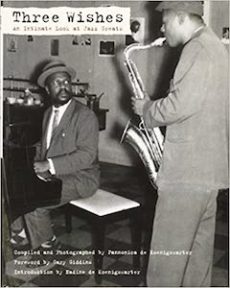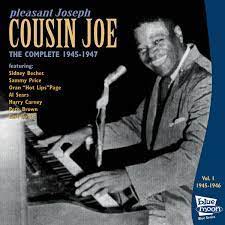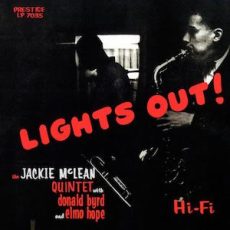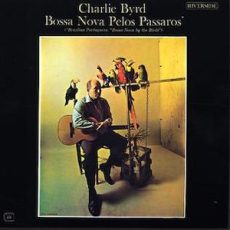
Three Wishes
While at a club or her Cathouse, Pannonica ventured the question to C. Stroman Scoby asking him to give her his three wishes he would want granted and his reply was:
- “Self~realization, by which I mean to realize my connection to the universe.”
- “Harmony among all the creatures in the universe. I wouldn’t need a third wish if those two.”
More Posts: drums,history,instrumental,jazz,music

Daily Dose Of Jazz…
Cousin Joe was born Pleasant Joseph on December 20, 1907 in Wallace, Louisiana. He worked at Whitney Plantation throughout his childhood. Until 1945, he toured Louisiana, but that year he was asked to take part in the King Jazz recording sessions organized by Mezz Mezzrow and Sindey Bechet.
In the 1970s, Cousin Joe toured extensively throughout the United Kingdom and Europe, both individually and as part of the American Blues Legends ’74 revue organised by Big Bear Music. He also recorded the album Gospel-Wailing, Jazz-Playing, Rock’n’Rolling, Soul-Shouting, Tap-Dancing Bluesman From New Orleans for Big Bear.
Vocalist and pianist Cousin Joe transitioned in his sleep from natural causes in New Orleans, Louisiana at the age of 81 on October 2, 1989.
More Posts: bandleader,history,instrumental,jazz,music,piano,vocal

Daily Dose Of Jazz…
Eric Marienthal was born on December 19, 1957 in Sacramento, California but moved with his family to San Mateo, California when he was two years old. He was taught music while in school and picked up the saxophone in the fourth grade. His father bought him a $400 Selmer saxophone and enrolled him in Corona Del Mar High School. Throughout his education, he learned to play guitar, flute, clarinet and piano.
After graduating from high school he studied saxophone at the Berklee College of Music. By the time he left Berklee, Eric had achieved the highest proficiency rating given by the school. He began his professional career in 1980 with New Orleans trumpeter Al Hirt. Heading west he settled in Los Angeles, California and became a member of the Chick Corea Elektric Band. He recorded six albums with that band and two of them won Grammy Awards.
Marienthal has also written instructional books, including Comprehensive Jazz Studies & Exercises, The Ultimate Jazz Play Along, and The Music of Eric Marienthal. He has made instructional videos, Play Sax From Day One, Modern Sax and Tricks of the Trade. He occupies the lead alto chair of Gordon Goodwin’s Big Phat Band, playing alto saxophone, soprano saxophone, flute, and piccolo.
Grammy Award-nominated alto saxophonist Eric Marienthal continues to perform and record.
More Posts: bandleader,flute,history,instrumental,jazz,music,piccolo,saxophone

Requisites
Lights Out! ~ The Jackie McLean Quintet | By Eddie Carter
The Jackie McLean Quintet steps into this morning’s spotlight with a 1956 release, Lights Out! (Prestige PRLP 7035/PRST 7757). It was the alto saxophonist’s label debut, and a superb supporting cast joins him on this date, Donald Byrd on trumpet, Elmo Hope on piano, Doug Watkins on bass, and Art Taylor on drums. My copy is the 2022 Analogue Productions Mono Audiophile reissue sharing the original catalog number. Side One opens with Jackie McLean’s Lights Out, a slow blues that comes to life in the rhythm section’s introduction, with a short statement by Elmo segueing into Jackie’s easy-going theme and opening solo. Donald compliments him leisurely using a mute, and Hope does his thing in the following reading. Both horns engage in an exchange of thoughts before the climax.
Up, also by the saxophonist, soars from the front line’s introduction into a rapid-fire melody. Byrd is up first and back on the open horn for a brisk reading. McLean romps through the second interpretation; next, Hope keeps up the energetic pace in a speedy performance. Taylor displays his talents in a brief finale followed by the horn’s return for a quick reprise. Lorraine, by Donald Byrd, begins with the trumpeter’s lovingly tender theme. He adds a personal touch to the first interpretation, matched by the rhythm section’s gorgeous groundwork. Jackie follows with a beautiful reading that’s a sultry treat for the ears, then Donald returns for a second statement that takes us away into a pretty ending by the front line.
A Foggy Day by George and Ira Gershwin kicks off Side Two. The song premiered in the 1937 musical comedy, A Damsel In Distress. McLean begins the melody with a happy, medium beat that extends to his lead solo. Byrd is back on the mute and flows with a gentle swing before passing it on to Hope. The pianist gives a charming closing statement leading to the ending theme that dissolves into emptiness. Donald Byrd’s Kerplunk gets underway with a carefree opening statement by Elmo that Donald maintains on the second interpretation with a relaxed groove. Jackie enters next and delivers a very efficient solo that proceeds to the front line blending their ideas into a satisfying conclusion ahead of the quintet’s exit.
Jackie McLean’s Inding starts with the trio’s introduction ahead of Byrd’s lively opening statement. Hope succeeds him with a lively presentation that shapes up nicely. McLean has the final say and brings the song home with a cheerful reading preceding the climax. Bob Weinstock supervised Lights Out!, and Rudy Van Gelder recorded it. Kevin Gray remastered this reissue, and the sound quality is outstanding. The record is on two-hundred grams of audiophile vinyl, and the album jacket has a high gloss. If you don’t already own an original pressing or early reissue, I highly recommend this Analogue Productions reissue for a spot in your library. It’s an excellent album by Jackie McLean that’s nearly forty-six minutes of pure bliss and can be enjoyed during the day, evening, or with the Lights Out!
~ A Foggy Day – Source: JazzStandards.com ~ © 2022 by Edward Thomas Carter
More Posts: choice,classic,collectible,collector,history,instrumental,jazz,music,saxophone

Daily Dose Of Jazz…
William Frank Reichenbach Sr. was born on December 18, 1923 in Washington, D.C. and started his musical career even before he graduated from the McKinley Tech High School. During World War II, he played in a band of the Navy before he toured with the big bands of Tommy Dorsey, Jimmy Dorsey, and Art Mooney. Later he worked in the jazz clubs of his hometown, where he accompanied Frank Sinatra, Patti Page, Teddy Wilson, and Zoot Sims.
Charlie Byrd hired Reichenbach as an additional drummer for the Stan Getz album Jazz Samba, recorded in 1962. This recording provoked a wave of enthusiasm for bossa nova in the United States. That same year he replaced Buddy Deppenschmidt in the Byrd trio, and stayed as a member for twelve years. Departing from Byrd, he returned to work in Washington D.C., as the house drummer at the Blues Alley.
Drummer and percussionist Bill Reichenbach, who co-developed the jazz-samba drumming style, transitioned following a series of strokes in Los Angeles, California, at the age of 84 on May 16, 2008.
More Posts: bandleader,drums,history,instrumental,jazz,music,percussion




